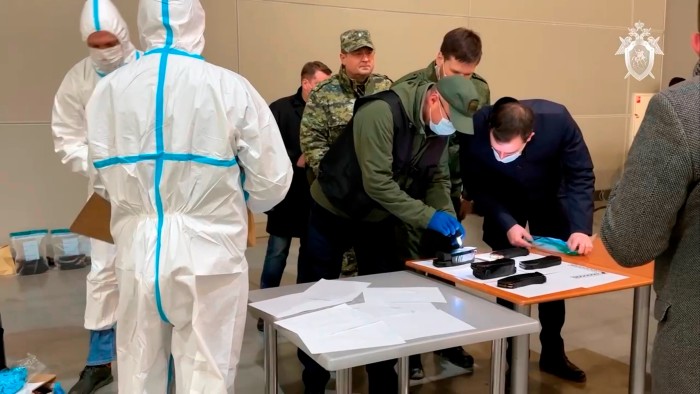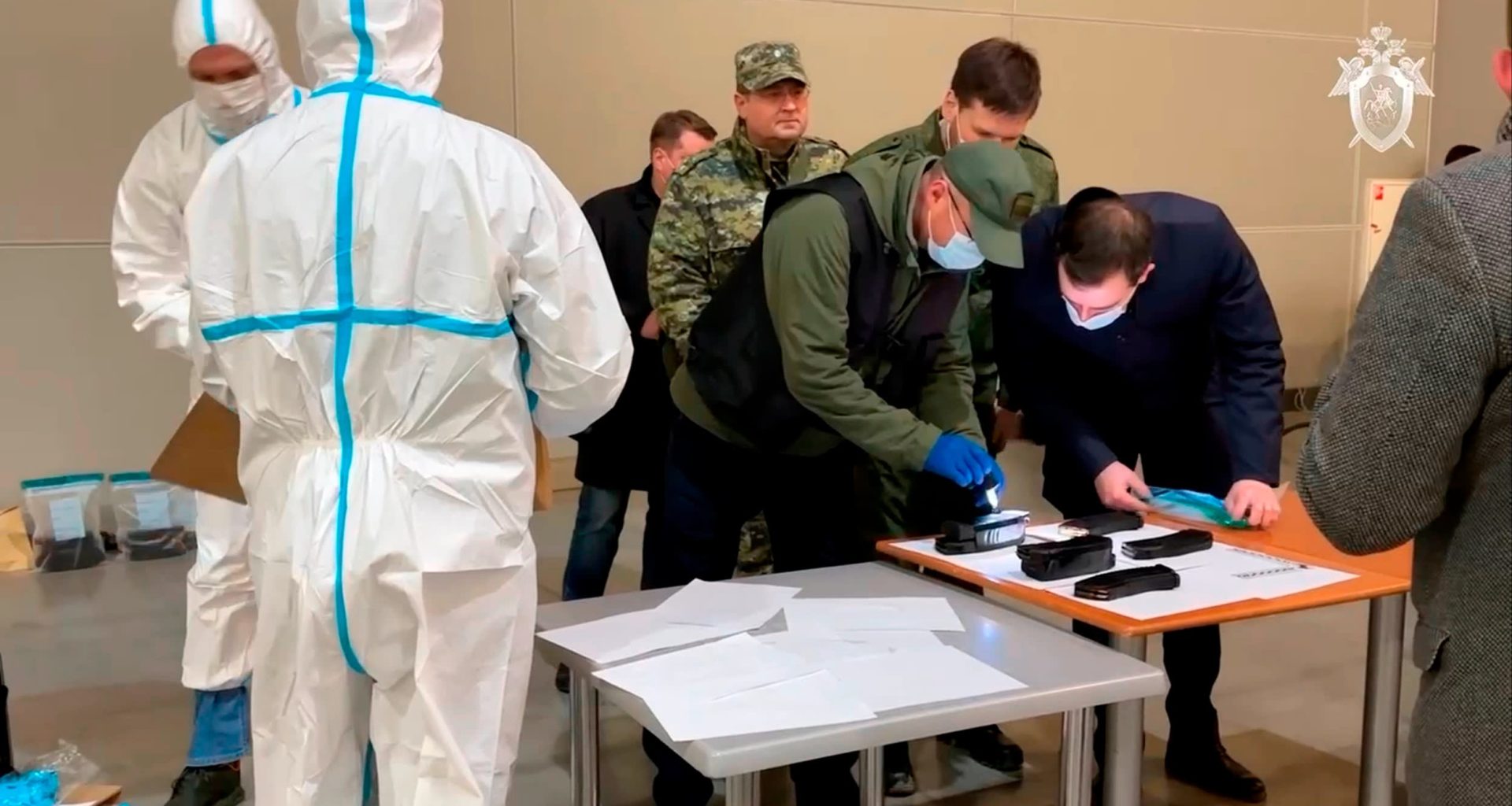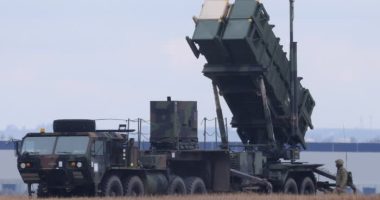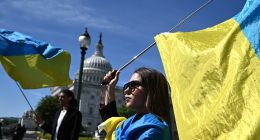During the last US administration, the CIA sent a team of analysts to Moscow armed with credible information about the Islamist threat posed to Russia by citizens of Central Asian states who had joined Isis in Iraq and Syria.
Instead of heeding their calls, the Russian side accused the US of itself supporting Isis. They offered the CIA a list of names of terror suspects — all of whom were Russian political dissidents living in exile in Europe.
For Douglas London, a retired CIA operations officer who sent that team to Moscow a few years ago, the events leading up to the March 22 attack on the Crocus City Hall concert venue this year — in which 144 people were killed — were all too familiar.
Russian security services have once again refused to take offers of western counterterrorism co-operation at face value, raising questions over whether misaligned priorities had diverted their attention away from genuine threats.
“We’d go prepared with information to pass them, which was genuine and credible, but the Russians would never provide meaningful intelligence or information that was not transparently misleading,” London told the Financial Times.
Two weeks before the Isis attack, the US embassy in the Russian capital warned that extremists had “imminent plans to target large gatherings in Moscow, to include concerts”, urging all Americans there to stay away from large gatherings for the next 48 hours. That public announcement was a follow-up on a private warning by Washington and other western capitals to Moscow. According to the Washington Post newspaper, the US’s warning even cited the precise target of the attack, Crocus City Hall.
But to President Vladimir Putin and his most senior security officials, these warnings were a sideshow. While Isis-Khorasan, an Islamist group with Afghan roots, immediately claimed responsibility and Russian authorities soon captured and visibly tortured four Isis-K suspects, Moscow has blamed Ukraine and its leadership for the attack. That allegation is categorically rejected by Kyiv and by western capitals.
Some concertgoers in Moscow that night said they did not notice any increased security at the venue, despite a sold-out show and the US warning.

Russian authorities have since said they foiled another attack on a Moscow synagogue, and killed two Kazakhs in Kaluga, in western Russia, who were allegedly members of the cell that attacked the Moscow music venue.
At the same time, Russia has lambasted the US. Putin claimed that the warning of a potential attack resembled “outright blackmail”, with the “intention to intimidate and destabilise our society”.
Alexander Bortnikov, the head of the domestic intelligence service (FSB), said last week that Washington’s warning of a potential attack had been “of a general nature” and alleged that western intelligence agencies had somehow been complicit in the shooting.
“We believe that radical Islamists prepared the action, while western special services assisted it and Ukrainian special services had a direct part in it,” Bortnikov claimed, without providing further details.
Dmitry Peskov, Putin’s press secretary, was more subtle in criticising the west: “The fight against terrorism requires international co-operation, but due to the confrontation with the west it is not being carried out,” he said.
On Peskov’s point, most security experts are in agreement.
Andrei Soldatov, an expert on Russia’s security services, said that co-operation with the US had been fraught, because in the past there had been several high-profile cases in which Russian officials tasked with maintaining connections with Americans were later either accused of treason by Moscow or became targets for recruitment by US intelligence.
“This kind of climate always undermines the idea of real co-operation with the Americans in terms of counterterrorism. And after the war started, of course it affected this kind of co-operation,” Soldatov said.
“Think about an officer who needs to get his message from the Americans and he needs to make a case to his superiors that they actually need to trust the information provided by the west. Of course he needs to think about his own career, and his own standing within the agency, because he doesn’t want to be seen as someone who is making the case for the Americans.”
Beyond the question of intelligence sharing, the attack has raised broader questions about the mis-steps of Putin’s well-funded security services, particularly against the backdrop of its war in Ukraine, and its own domestic crackdown on the regime’s critics and opposition.
Some security experts noted that counterterrorism efforts were notoriously difficult, and said the narrative that the war in Ukraine had distracted the security services from more serious security threats was an oversimplified one.
At the same time, they said, it was clear that fighting Isis was not deemed as important to the security services as some other political priorities.

“It’s not that they didn’t think there was a threat, or weren’t looking for it, it’s that perhaps they just didn’t have the same political priority,” said Mark Galeotti, a military expert and honorary professor at University College London. “The political priorities . . . are set by the Kremlin and that’s absolutely Ukraine and the democratic political opposition.”
Over the past several years, the Kremlin has steadily expanded the list of “extremist” organisations in Russia to include groups and individuals deemed to be antagonistic to the regime, such as LGBT+ activists and the anti-corruption movement of the late opposition leader Alexei Navalny.
The Jehovah’s Witnesses and the US technology company Meta, which owns Facebook, WhatsApp and Instagram, are also on the list.
Such an expansive monitoring effort inevitably put a strain on security agencies’ resources.
“Of course you get distracted . . . because you need to follow all these lists and you need to report that you’re actually doing something about these people, and that’s a waste of resources,” said Soldatov.
London, the retired CIA operations officer and author, said the attack on the music venue also underscored some long-standing operational weaknesses of the FSB.
“The FSB has a lot of technical capabilities. The country’s wired for sound and sight. There’s video cameras everywhere . . . They control the internet . . . But they’re not very nuanced. They have a scorched earth approach to addressing their problems,” London said.
“You can see that on the battlefield, but it also translates to how they do intel. When they do go after sources, usually it’s coercion, they’re blackmailing people, people they’ve arrested or whose families they can threaten, including causing bodily harm. They’re not good at patiently finding and cultivating insiders, developing relationships and securing reliable penetrations.”
As Russia considers the next steps in its response to the attack, the government’s claim of Ukrainian involvement is likely to complicate its efforts, said Pavel Baev, a research professor at the Peace Research Institute Oslo.
The state had chosen to publicise the torture of suspects — something that appears to have resonated with the Russian public — but that approach was not likely to contribute much to the fight to prevent another attack, he said.
“Russian special services have a long history of applying these methods . . . [but] it doesn’t bring you any closer to really dealing with the core problem of exterminating these networks with preventing the next attack,” he said.
Additional reporting by Anastasia Stognei in Riga
Read More: World News | Entertainment News | Celeb News
FT










